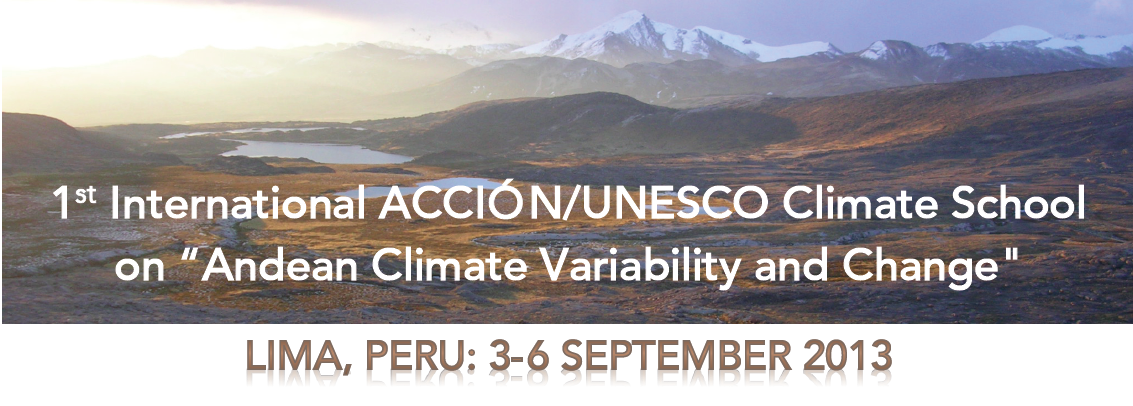

Lima, Peru – The Andean Climate Change Interandean Observatory Network (ACCIÓN), an initiative funded by the U.S. State Department and UNESCO’s International Hydrologic Program (IHP), invited atmospheric and environmental science students from Andean countries (Colombia, Ecuador, Peru, Chile) to participate in the First Climate School on “Andean Climate Variability and Change”, which will take place in Lima, Peru, from 3-6 September, 2013. Scientists from all fields of climate research were invited to apply. The course aims to foster cross-disciplinary connections and collaborations and will cover a broad spectrum of climate change aspects. The school will include a mix of plenary lectures, group work and individual computer-based assignments. The course will provide a platform where the next generation of Andean scientists may gain professional experience and make connections beyond their countries’ borders.
The First International ACCIÓN/UNESCO Climate School focuses on the topic of “Andean Climate Variability and Change”, based on the topic’s timeliness and the considerable consequences of climate change facing the Andean environment and its communities. The Climate School intends to focus both on the uncertainties of our current understanding of the climate system, as well as on the scientific challenges associated with future climate projections.
The goal of the ACCIÓN program is to enhance capacity building at both the scientific and communication levels in target countries, thereby strengthening policy making and local research institutions. The ACCIÓN Program will yield a sustainable network of local scientists and stakeholders that can translate the latest scientific results into on-the-ground adaptation actions. The project focuses on three main activities: 1) training of local scientists, educators, water managers and policy makers; 2) cutting-edge education in climate change and glacier modeling for young scientists, and 3) outreach to affected population segments, industries, water managers and other decision makers in order to promote policy dialogue with local stakeholders, national governments and regional bodies, and to strengthen human and institutional capital.
The Climate School will take place at the Servicio Nacional de Meteorología e Hidrología (SENAMHI) in Lima.
 View Map
View Map